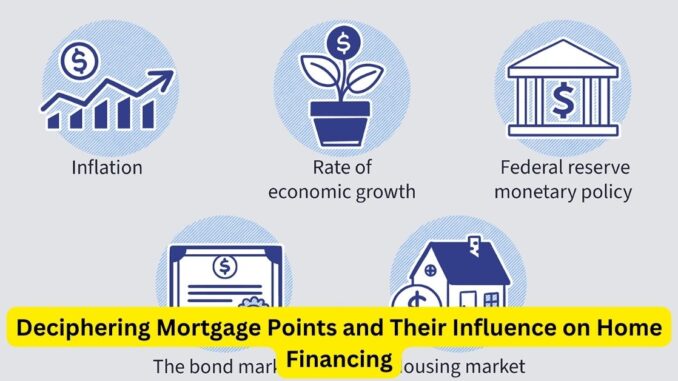
Navigating the mortgage landscape involves considering various factors that impact the overall cost of homeownership. Among these considerations are mortgage points, a concept that can significantly influence the terms and expenses associated with a home loan. Understanding what mortgage points are and their potential impact is crucial for prospective homeowners seeking favorable financing options.
1. What are Mortgage Points?
Mortgage points, also known as discount points, are fees paid directly to the lender at the time of closing in exchange for a reduced interest rate on the mortgage. Each point typically costs 1% of the total loan amount. By paying points upfront, borrowers can “buy down” their interest rate, lowering their monthly mortgage payments over the life of the loan.
2. How Do Mortgage Points Impact Financing?
- Reduced Interest Rates: One of the primary impacts of mortgage points is their ability to lower the interest rate on the loan. For each point purchased, the interest rate is usually reduced by a predetermined fraction, often 0.25%. This reduction translates into savings over time, particularly for long-term mortgages.
- Financial Trade-offs: While paying points upfront can lead to reduced interest rates and long-term savings, it requires an initial financial investment. Borrowers must weigh the upfront cost against the potential savings over the life of the loan to determine if purchasing points aligns with their financial goals.
- Break-Even Point: Calculating the “break-even point” helps borrowers determine whether buying points is financially beneficial. This point represents when the accumulated savings from the reduced monthly payments surpass the initial cost of purchasing points. Generally, the longer a borrower stays in the home, the more advantageous buying points becomes.
3. Factors to Consider When Contemplating Mortgage Points
- Loan Duration: The length of time a borrower intends to stay in the home plays a crucial role in the decision to buy points. If planning for a short-term stay, the savings from reduced monthly payments might not offset the upfront cost of points.
- Available Funds: Purchasing points requires upfront cash. Assessing available funds and determining how they impact short-term and long-term financial goals is essential before deciding on buying points.
- Tax Implications: In some cases, points may be tax-deductible. Consulting with a tax professional can provide clarity on potential tax benefits associated with purchasing mortgage points.
Conclusion
Understanding mortgage points empowers borrowers to make informed decisions when securing a mortgage. While they offer potential savings through reduced interest rates, the decision to purchase points should align with individual financial circumstances, homeownership plans, and long-term financial objectives. Evaluating the trade-offs and considering personal financial goals will help borrowers determine whether buying points is a prudent strategy in their home financing journey.
Leave a Reply